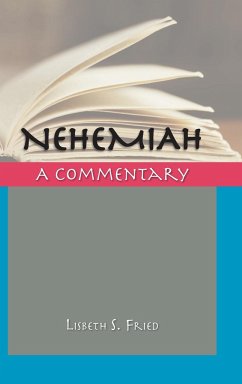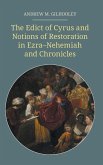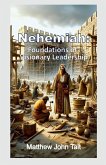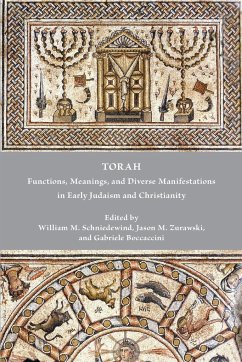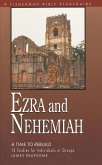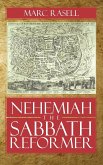Lisbeth Fried's commentary on Nehemiah is the second instalment of her two-volume commentary on Ezra-Nehemiah. The first instalment, Ezra, was published by Sheffield Phoenix in 2015. Like her commentary on Ezra, Nehemiah too takes full advantage of recent results in archaeology and numismatics, as well as in the mechanisms of Persian and Hellenistic rule, and in the influence of the Hellenistic and Maccabean Wars on Jewish writings. Like her Ezra, the present volume includes a new translation of the book of Nehemiah, plus text-critical notes on each verse which compare and contrast the Greek, Latin and Syriac versions. The Introduction and extensive chapter commentaries provide a discussion of the larger historical and literary issues. Although not finalized until the Maccabean period, the book of Nehemiah contains a temple foundation document from the time of Darius I, a story of rebuilding and dedicating a city wall around Jerusalem in the mid-fifth century, and a memoir from a fifth-century governor of Judah. Numerous additions and lists that date from the Hellenistic and Maccabean periods complete the book. Fried concludes controversially that the book of Nehemiah contains two separate first-person reports-one by Nehemiah, wine steward of Artaxerxes I and wall-builder of Jerusalem, and one by Yeho'ezer, a fifth-century governor of Judah, known from seals found at the governor's mansion at Ramat Räel. Nehemiah the wall-builder, whose full name was actually Nehemiah Attir¿ata ben ¿acaliah, was never a governor of Yehud, but a Jewish Persian official in charge of the Jerusalem temple priesthood.
Hinweis: Dieser Artikel kann nur an eine deutsche Lieferadresse ausgeliefert werden.
Hinweis: Dieser Artikel kann nur an eine deutsche Lieferadresse ausgeliefert werden.

